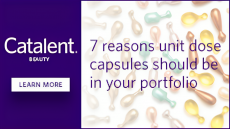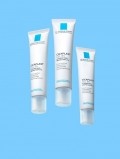DNA markers in packaging as an anti counterfeit measure
protects products against fraud and counterfeiting, to the 'Future
of Ink on Packaging' conference in London next week, in the hope of
bringing its product to the European market.
Applied DNA Sciences (APDN), based in New York, provide DNA-based technology to prevent and identify fakes; their solutions helping to protect companies, governments and consumers from counterfeiting and fraud. The technology involves the inclusion of a DNA marker into the product label, or product surface, which can then be quickly and easily identified with a matching DNA identification pen. In addition, the technology can be used in conjunction with other security systems, such as RFIDs, watermarks and barcodes. The recently launched, patented technology, the SigNature programme, can be used on almost any consumer product including DVDs and CDs, fine art, prestige wine, luxury and personal care goods, and pharmaceutical products. The company claim that it is almost impossible to forge the technology, adding that its broadly applicable nature, along with its relatively low price, make ADPN's SigNature programme the perfect answer to protect revenues brands and consumer confidence. The SigNature system involves the isolation of botanical DNA, which can then be fragmented and rebuilt, to form an encrypted DNA sequence (known as DNA chimers), which is known only to the company. The DNA chimer is then encapsulated for protection; it can then be attached directly to the product, or to the label of the product, and remains detectable for hundreds of years. The encapsulated DNA chimer can be incorporated into a wide range of medium, including petroleum and its derivatives, as well as inks, dyes, glues and textiles. According to the company, authentication of the DNA marker is quick and easy. A primary test can be performed using a detection pen, which will cause a colour change if the SigNature ink is present. No change in colour suggests that counterfeiting has occurred, and a more complex, time-consuming test can be performed that would confirm product authentication. The company's technology has been used through a licensee in Asia, and has recently been launched in the US and Europe, and APDN is currently in discussions with multinational companies regarding the use of SigNature ink to combat counterfeit goods. The International Chamber of Commerce's Counterfeiting Intelligence Bureau estimate that trade in counterfeit goods accounts for approximately 7 per cent of world trade, costing multinational manufacturers on average 10 per cent of their sales. Of particular importance are industries where counterfeit goods can be dangerous, such as the pharmaceutical and the personal care industry. Indeed, the recent toxic toothpaste scandal - involving the distribution of counterfeit Colgate toothpaste containing the toxic ingredient diethylene glycol -specifically illustrates the need for counterfeit protection within the personal care market.













